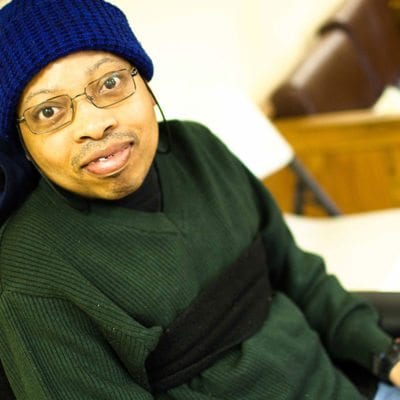The first step is understanding and connecting with available resources. DePaul’s Developmental Disabilities division is here to help in your journey. We invite you to contact one of our residential coordinators for more information.
Additionally, the following resources have been collected to aid you as you learn more about disability services available in the Commonwealth.
The Virginia Department of Behavioral Health & Developmental Services (DBHDS) provides resources and information to access services and supports for individuals with intellectual and developmental disabilities. A community service board (CSB) is the point of entry into the publicly funded system of services for individuals with intellectual and developmental disabilities.
The Virginia Disability Services Agencies (DSA) provides a host of services offered to individuals with intellectual and developmental disabilities, such as communication, community living, devices and equipment, education, financial assistance, transportation, rights and advocacy, and more.
Partners in Policymaking (PIP) participants are people who live in Virginia, have a developmental disability or are parents of young children with developmental disabilities. Individuals attending the program participate in advocacy skill workshops, resource development, and leadership training. Youth Leadership Forum (YLF) seeks to empower young people with developmental and other disabilities to further develop their leadership skills. Students, serving as delegates from communities throughout Virginia, participate in a wide range of activities and learning experiences during this summer program set on a university campus. Both PIP and YLF are programs of the Virginia Board for People with Disabilities which advises the Governor, the Secretary of Health and Human Resources, federal and state legislators, and other constituent groups on issues related to people with disabilities in Virginia.
The Virginia Department for Aging and Rehabilitation Services (DARS) provides and advocates for resources and services to improve the employment, quality of life, security, and independence of older Virginians, Virginians with disabilities, and their families. DARS offers employment services, community-based services, assistive technology services, and disability determination services.
Virginia Easy Access offers community supports for adults with disabilities, seniors, and caregivers with information and resources on long-term support options, housing, money management, transportation, government services and benefits, and other supportive services.
The Arc and The Arc of Virginia promote and protect the human rights of people with intellectual and developmental disabilities, and actively support their full inclusion and participation in the community throughout their lifetimes. Services range from planning for the future to connecting employers with talented employees with intellectual and developmental disabilities. The Arc also engages in public policy and education and activism.
The Disability Law Center of Virginia is a private nonprofit organization that advances the legal and civil rights of people with disabilities in the Commonwealth. The center helps with disability-related problems such as abuse, neglect, and discrimination, and helps people with disabilities obtain services and treatment.
The Partnership for People with Disabilities offers many products and services to individuals, families, professionals, and students in the disability community. Programs include community living, early childhood/early intervention, education, and health.
The Autism and Dental Care guide offers advice from dental experts to help patients and caregivers prepare for upcoming dental visits as well as helping them with tips and techniques that ensure proper oral health habits in the future.
New Mouth is a national resource with educational and government programs related to oral health and dental care. Recent articles include: Developmental Disabilities and Oral Health, Physical Disabilities and Oral Health, and Effects of Medications on Oral Health.
Centers for Independent Living, often referred to as “CILs”, work with individuals to promote leadership and independence as well as with local communities to remove barriers to independence. CILs provide advocacy, peer counseling, independent living skills training, information and referral, and transition services to individuals and systems change advocacy, disability awareness, community education, and technical assistance regarding accessibility and disability-related legislation to the community.
Caring for a child with a physical disability presents unique challenges for families. To support families in these situations, Disability Advice has created this comprehensive guide offering practical advice on managing physical disabilities, accessing the right therapies, and exploring financial assistance options such as SSDI. The guide also provides information on school accommodations and community support services available to help children with physical disabilities thrive.

